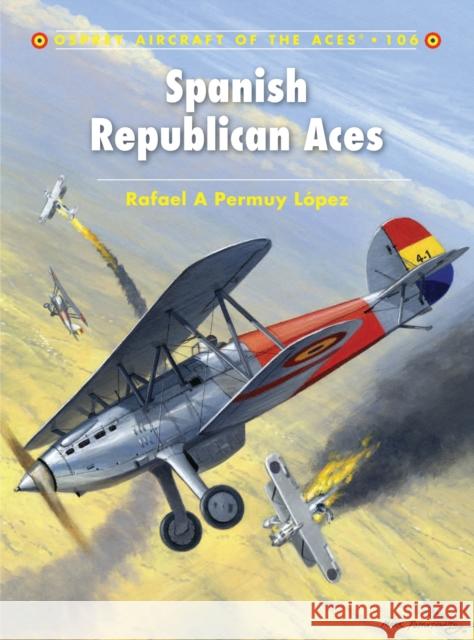Spanish Republican Aces » książka
Spanish Republican Aces
ISBN-13: 9781849086684 / Angielski / Miękka / 2012 / 96 str.
At the start of the civil war, most young fighter officers joined the rebels (Nationalists). It was the high ranking officers, grupo or escuadrilla commanders, and the NCOs, sergeants and corporals who remained loyal to the government. The obsolete Nieuport Ni.52s and the three rare Hawker Furies were soon outpaced by the opposing more modern Fiat CR.32s and Heinkel He 51s. However, at this early stage of the war, there were several Republican airmen who became aces and famous in the process, despite the small numbers of enemy aircraft shot down. Subsequently, a relative handful ex-French Dewoitine D.372 and Loire Nieuport 46 fighters flown by foreign mercenaries and Spanish pilots managed to turn the aerial balance in favour of the Republicans. With the arrival of the Soviet Polikarpov I-15 Chato and I-16 Mosca fighters, the Republicans consolidated this superiority, but most of the fighter pilots flying these modern types were Soviet. Some Spaniards started to fly Chatos from February 1937 with the establishment of the first two Spanish I-15 escuadrillas, commanded by capitanes Garcia Lacalle and Alonso Santamaria respectively. They made their debut in the battles of the Jarama and Guadalajara. In the north, by the spring and summer of 1937 most Chato pilots were now Spanish. During the battle of Brunete, in July 1937, the first pilots trained in the USSR to fly the fast I-16 Mosca monoplanes arrived in Spain, and they quickly began to take a toll of enemy aircraft. Widely speaking, the Republican military aviation did not keep an exhaustive record of individual shooting claims. However, sufficient documentation exists to make a reasonable assumption as to which pilots fall into the ace category. This volume details the exploits of those pilots, complimenting previous works in the Osprey Aircraft of the Aces series on Nationalist CR.32 Aces and Polikarpov I-15, I-16 and I-152 Aces."











